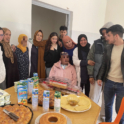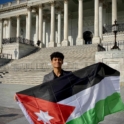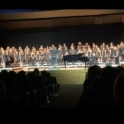Maryame has taken the lessons learned from her exchange year to make a difference in her community.
STORIES
13 YES Alumni Grant Projects that are Making a Difference in the World
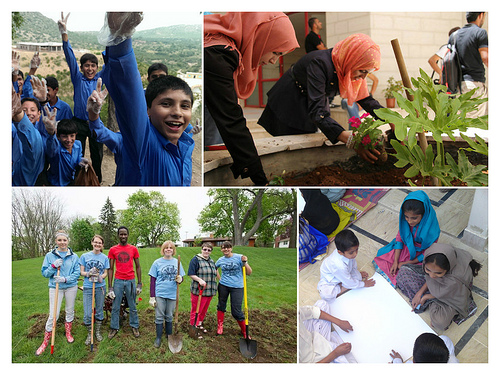
Do you believe that grassroots community projects can make a difference in the world? There are 13 projects that we know did! The projects were conducted by YES alumni from Cameroon, Egypt, Ghana, Indonesia, Jordan, Lebanon, Liberia, Mali, Pakistan, Sierra Leone, Suriname, and the West Bank- Palestine. They received grant funding from the YES program to support them; however, it was their sweat and tears, combined with the help of their community teams, which are making a difference in improving the lives of the people around them.
How? Read how Mohammed Tahboub created an environmental awareness campaign at his university in West Bank-Palestine; Inusah and Mahaitou taught their rural communities in Ghana and Mali about computing and taught the teachers who teach computing. Hassan Saeed also created training workshops for knowledge-thirsty teachers in the SWAT region in Pakistan. Hasan Iqbal created a sports day and the “right to play” opportunity for 300 students at a school for the blind and the deaf in Karachi. Hamza’s love for science urged him to work with teachers in Jordan, encouraging them to think about adding practical-based, fun learning to the science lab. Mohammed Kiawu in Liberia, Sumanta in Suriname and Arya in Indonesia sought to bring needed direction for at-risk communities in their towns. Tarek in Egypt knows that youth can be the social entrepreneurs to rebuild Egypt’s economy. Dory in Lebanon knows that underprivileged kids need opportunity for fun and learning and Evangeline worked with a team of super motivated YES alumni in Cameroon to energize her community about motorcycle safety. Joseph dug up a community garden which now produces fresh vegetables for a community table.
All these projects, taken on by YES alumni who are university, or sometimes high school, students, address development needs around the world in education, public health and environmental activism, social entrepreneurism, conflict prevention and conflict transformation and community development. The youth sought to serve target populations that included children from under-resourced communities, adult women seeking language skills, at-risk youth, school children with disabilities, teachers of science, teachers of English, teachers of ICT, youth and adults needing to learn ICT and communities lacking knowledge of safety and environmental awareness. The YES leaders built trust by engaging local partner organizations including schools, local NGOs and sometimes the local government, to support the community and to provide cost-sharing and valuable resources for the project.
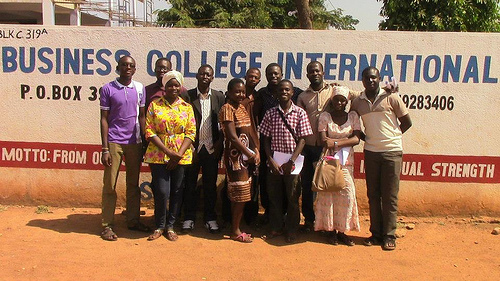
1. Inusah Al-Hassan (YES 2009-2010 Ghana) knew that in his rural community of Tamale, Ghana, not only did students in middle and high school need computer literacy, but the teachers who taught Information Communications Technology (ICT) needed more training as well. Inusah created YESICT4ALL, which he developed during the 10th Anniversary YES Alumni Istanbul Workshop in September of 2013, and his project was selected for funding. Inusah’s challenges for YESICT4ALL include lack of electricity and the high cost of gas in Tamale. However, the students and teachers are eager and grateful for the knowledge and the project is ongoing.
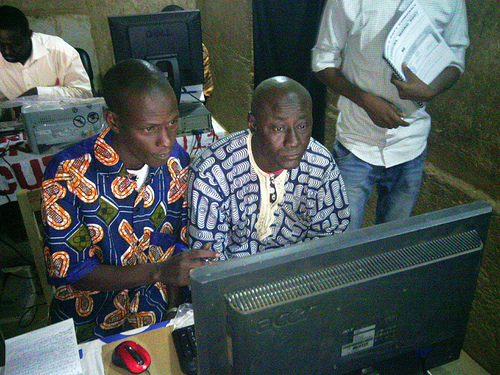
2. Mahaitou Maiga (YES 2007-2008 Mali) also participated in the 10th Anniversary workshop in Istanbul in 2013 and he too knows that through YESICT4ALL he could bring Information Communications Technology (ICT) to Bourem, his small village in southeastern Mali. The students, teachers and entire village were happy to have the ICT center opened as a public facility for the community. The center is so frequently utilized that Mahaitou is now looking for a bigger space. Mahaitou’s village is also challenged by electricity needs and there is no internet, however he and his community continue to solve problems as they recognize the need for technology education.
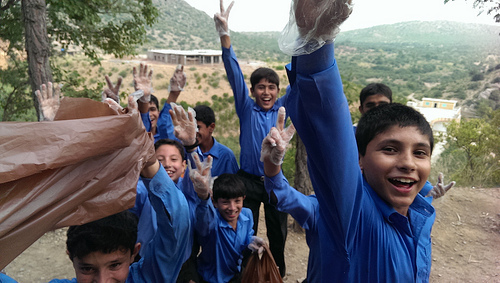
3. Hassan Saeed (YES 2008-2009 Pakistan) observed that teachers are thirsty to learn more about new teaching methods and adding fun to learning. He conducted Project Re-Educate 1 for 40 school children in rural areas of the SWAT Khyber Pakhtoonkhwa (KPK) region of Pakistan, a long-term conflict region. Through Project Re-Educate 1, the children learned about the value of community service. However in order for children to improve, teachers also need continuing education, which is rarely available. Seeing this, Hassan redesigned Project Re-Educate 2 so that it provided training for 25 government school teachers in the cities of Peshawar, Charsadda, and Swab. The workshops aimed to improve teaching methodologies, and introduced new activities and exercises in English-teaching classrooms. The workshops were recorded through Radio Pakistan, an important means for local communication. Hassan continues his project to address the needs on the ground with new grant funding.
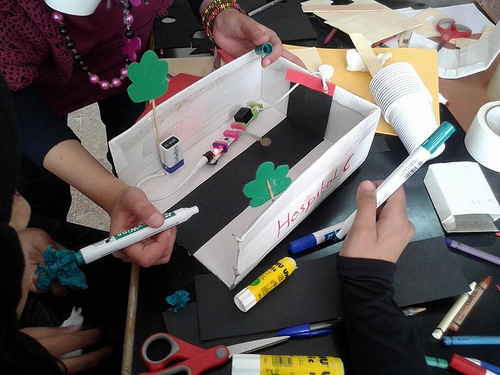
4. Hamza Arsbi (YES 2006-2007 Jordan) loves science and is committed to improving the teaching of science in his native Jordan. He created the Scientific Culture Society in 2006 to encourage both students and teachers to look at different ways to learn and teach. Hamza’s grant project, The Portable Lab, helped him assist public school science teachers with the development of a Problem-Based Learning (PBL) curriculum. The project included the design and implementation of a professional development workshop series on Problem-Based Science Learning as well as providing portable labs – hands on kits that students get to work on. Hamza has led the Scientific Culture Society in other projects and he received the American Middle Eastern Network for Dialogue at Stanford (AMENDS) Fellowship due to his vision for scientific education.
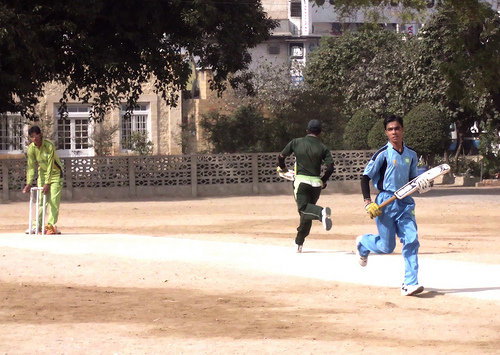
5. Hasan Iqbal (YES 2009-2010 Pakistan) believes in the “right to play,” which is an international movement promoting the right to sport as a human right. He advocates for students with disabilities to also enjoy sports, so he conducted Sports: Turning Disability into Ability at the IDA RIEU Welfare Association, a school for more than 300 blind and deaf students in Karachi. The project provided sports equipment for the school and the students. It also provided athletic training and practices for the students and culminated with a two day Sports Fun Event.
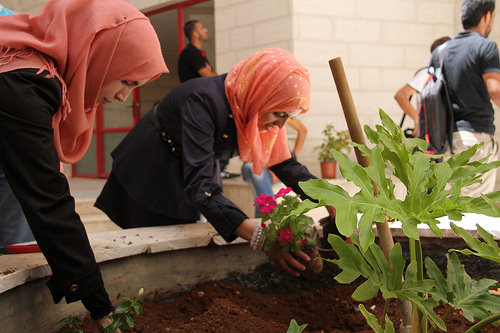
6. Mohamed Tahboub (YES 2008-2008 West Bank-Palestine) wanted students and staff at his university, Palestine Polytechnic University in the city of Hebron, to get inspired about supporting the environment. His project, NADDF, the Arabic word for cleanliness, was a multi-faceted environmental awareness campaign and involved the purchase and installation of campus-wide recycling and trash bins as well as campus renovation and anti-smoking awareness campaign. It has been accepted well by the students and campus, and continues on today.
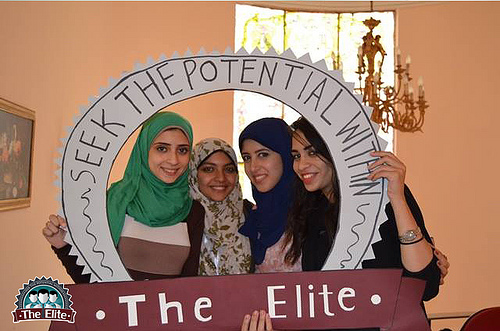
7. Tarek Ibrahim (YES 2010-2011 Egypt) believes in the power of social entrepreneurship. He believes that youth are the future for rebuilding Egypt’s economy and society during the ongoing changes to Egypt’s political structure. His workshop, The Elite, aimed to provide the participants with communication, leadership, civic engagement, project management, and marketing skills to empower Egyptian youth towards social and business entrepreneurship.
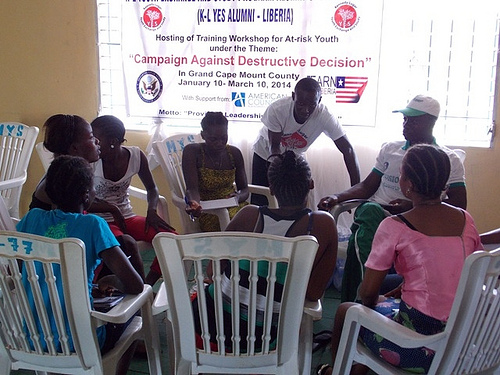
8. Mohammed Kiawu (YES 2010-2011 Liberia) looked around his community and found too many at-risk youth. He created an intervention, the Campaign Against Destructive Decisions. This prevention and intervention project engaged 50 at-risk youth in training and workshops and helped them with self-skills, such as leadership, advocacy and positive behavior change, to start re-designing their future.
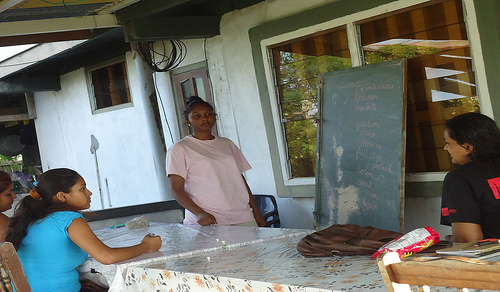
9. Sumanta Bansi (YES 2011-2012 Suriname) knows that women without education and job skills in her rural community of Wageningen are also at-risk and may face difficult life challenges. Teaching Female Dropouts the Basics of the English Language was her response. She set up courses to teach women between the ages of 19 to 45 who had not completed their formal education. With the basic English training that this project provided, the women are more likely to be able to sell their homemade goods to English-speaking communties in Suriname.
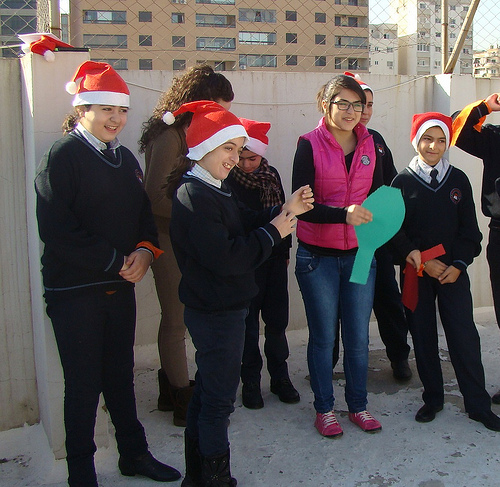
10. Dory Merhy (YES 2009-2010 Lebanon) wants to provide opportunities for Lebanese kids from underprivileged backgrounds. Kids: Future Leaders provided for a day of fun activities for school children. The themes of the workshops addressed religious and ethnic coexistence and tolerance, leadership, teamwork and cooperation, English skills, and the environment. The project also had a training on first aid and basic medical knowledge for youth who work with kids.
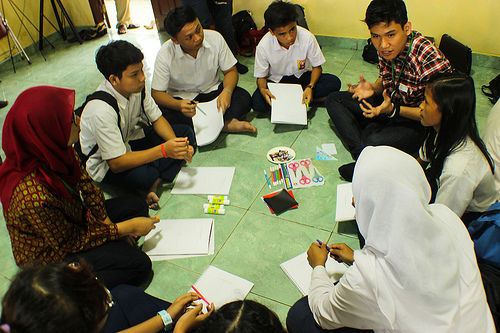
11. Aryanda Ondrio (YES 2010-2011 Indonesia) has been working with underprivileged youth on a series of projects named YES Bergabi, which have been conducted by YES Indonesian alumni since 2012. YES Berbagi 3 was designed to inspire young people to achieve their dreams through programs involving interactive discussions and active learning in emergency schools in Indonesia.
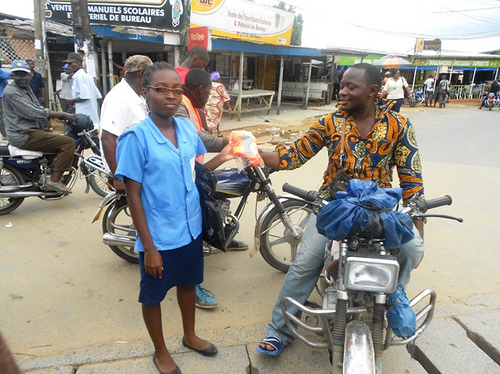
12. Evangeline Bekemeh Safeh (YES 2011-2012 Cameroon) is part of a tightknit, active, community-serving YES alumni association. She looked around and found that the community needed safety sensitization, especially related to motorcycles, which are a common method of transformation. Saving Students from Motorbike Accidents is a motorbike safety awareness campaign in Doula. She conducted three Motorbike Accidents Challenge workshops for students, school administrators, and motorbike riders. Driving school specialists and trade union representatives, along with YES alumni, provided information about driving license procedures, driving speed limits, helmet specifications, and road safety.
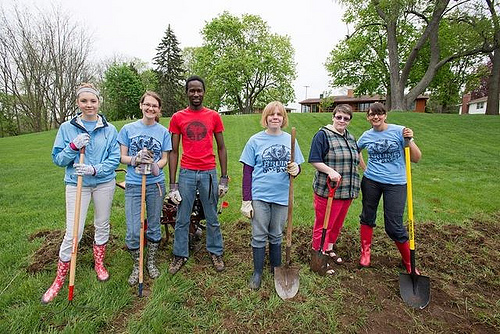
13. Joseph Marah (YES 2010-2011 Sierra Leone) discovered that his community at Kellogg Community College (KCC) in Battle Creek Michigan, where he is a student, could use a community garden to provide fresh vegetables to a local community table that serves the homeless. Joseph’s YES-Kellogg Community College (KCC) Community Garden project created a campus-based community garden, which not only became a local food source, but also gave an outdoor gardening opportunity for students, staff and community members. Joseph’s participation in the YES Alumni Istanbul Workshop in 2013 helped him receive the funding.
Hats off to these 13 great YES Alumni! More power to you!


